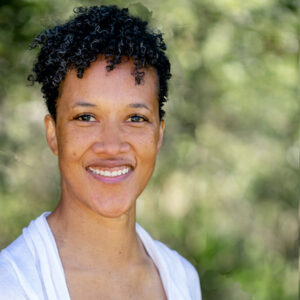by Kamala Itzel Hayward
“Collective trauma” is the mental, emotional, psychological, and spiritual harm experienced by a group of people as the result of a traumatic event or series of events. The group can be a specific demographic, a nation, or even everyone in the world. Acts of terrorism, natural disasters, and war are common examples, as are persistent societal and cultural conditions, such as colonialism, imperialism, toxic capitalism, and all forms of structural and systemic oppression.
Dominant culture embraces and even celebrates individualism. As such, it urges us to consider trauma as an individual problem, and to take an individualistic approach to healing from it. The result is the toxic denial of our essential interdependence.
Contemporary research confirms what the ancients have told us for centuries: that yoga can heal. Studies show that asana, pranayama, deep relaxation, and meditation all help to activate the parasympathetic nervous system (the opposite of the fight, flight, freeze, fawn mode that’s engaged during a traumatic event), thereby helping to reduce many trauma symptoms. These practices are a balm to our nervous system, giving our bodies, minds, and spirits time and space for silence, reflection, and rest. This space is the field in which we can come back into connection with both our humanity and the awareness of our own divinity.
Healing from collective trauma is further served through engaging in those yoga practices alongside others.
Practicing in community allows us to move out of the feelings of disconnection, shame, and isolation that are the result of trauma, and begin to understand that our trauma is not unique to any one of us. It creates a sense of community and belonging. In community we are reminded of our interdependence and interconnectedness. Practicing together also allows us to co-create a space in which we, as a community, can support each others’ healing and also visualize and dream together of a world we’ve never lived in—a world free from oppression and traumatic wounding.
As we come together to engage in healing practices, we begin to see more deeply into the truth of the fact that we are not separate from others and, as such, the healing of the individual is not separate from the healing of others. And we become better able to support one another and work toward creating healing change in our communities.
To make the most meaningful movement toward collective healing through practicing in community, find a trauma-informed yoga class with a teacher who actively moves away from yoga practices shaped by colonialism and appropriation and who understands the nature and impact of the collective trauma that comes from living in systems of oppression.
In the upcoming online Satsang, Yoga for Healing Collective Trauma, Sat. March 18 @ 5:30 pm – 6:30 pm PT, we’ll explore the role that yoga can play in the transformation and healing of collective trauma—in particular, collective trauma experienced as a result of living under structural and systemic oppression. We’ll come together to talk and explore ways we can collectively work to disrupt this oppression. And you’ll be guided through a practice to connect with the wisdom of your ancestors, the healing of yourself and future generations, and our sacred interconnectedness with all beings, wherever and whenever they may be.
 Kamala Itzel Hayward was a lawyer for over a decade before becoming a Yoga teacher and Yoga therapist specializing in trauma, addiction, and wellness. She is passionate about bringing Yoga and other healing modalities to adults facing chronic stress caused by living under oppression, such as racism, sexism, homophobia, transphobia, classism, ableism, and more.
Kamala Itzel Hayward was a lawyer for over a decade before becoming a Yoga teacher and Yoga therapist specializing in trauma, addiction, and wellness. She is passionate about bringing Yoga and other healing modalities to adults facing chronic stress caused by living under oppression, such as racism, sexism, homophobia, transphobia, classism, ableism, and more.
She is founder of the Integral Yoga Institute’s Scholarship-Based Yoga Teacher Training for Black, Indigenous, People of Color. For the last 12 years, she has been sharing Yoga with individuals facing housing insecurity and related challenges, including systemic barriers; structural oppression; social dislocation; physical, emotional, and mental health challenges; substance abuse; and addiction. She sits on the Advisory Board for the Trauma Prevention and Recovery Certificate Program at the City College of San Francisco.

